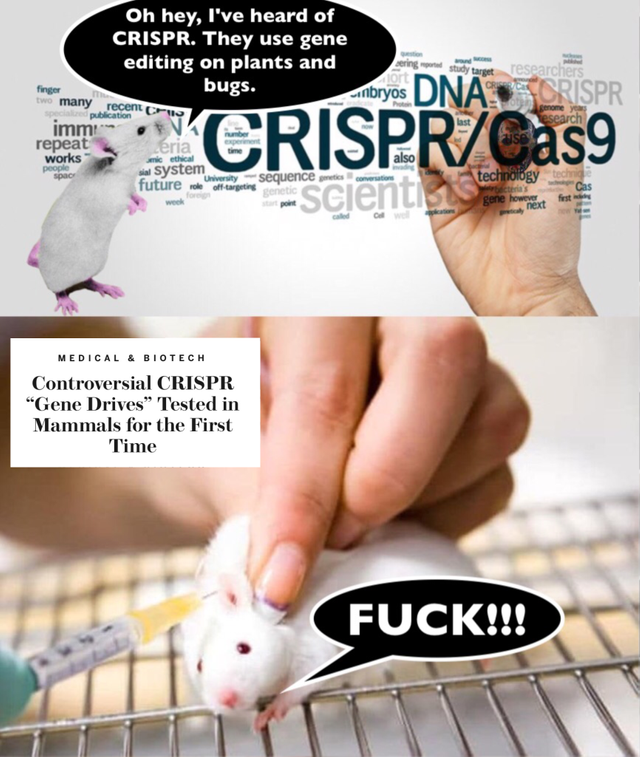
Hey steemple! How's it going? Great! I'm just going to dive right into this one. But before I do, the article link here
"Experiments in mice suggest the technology has a long way to go before being used for pest control in the wild"
Not nearly long enough. This is dangerous territory, and any possible good that can come from this technology, will undoubtedly be outweighed by the negative outcomes.
Hey, I know another mammal that's population is always talked about as being out of control! Think that maybe this mammal (that shares a lot of genetic similarities to mice) could be what they really want to "eradicate"?
The whole problem with the logic of killing off one species, like mosquitoes, mice, rats, etc. You're removing a link from the food chain, that connects all species in perfect balance. If you kill off mosquitoes, what will the bats and swallows eat? Killing off rats and mice, will cause animals like foxes and owls to lose an important part of their diet.
For every action there is a reaction, and consequences to suffer. The worst part of this technology, is the potential Pandora's box effect. You know that when they release these 'edited animals' into the wild. They'll never be able to undo it. But, it is almost a certainty (in my mind) that these are the sort of consequences that they are hoping for.
Who's to say they won't let a few escape from the lab one day? They've done it with GMO crops more than a few times.
Replace the word rats with 'Humans' and there's your #Agenda2030. There's your Georgia guide stones. It's all so obvious!
"One study by the Karolinska Institutet and another one by Novartis, both published Monday in the journal Nature Medicine, suggest that a successful CRISPR-Cas9 edit may indicate that the modified cell lacks a cancer-suppressing protein, thereby increasing a patient’s risk.
The protein, called p53, acts as the body’s cellular “first aid” kit and also causes some CRISPR edits to fail. Since CRISPR-Cas9 works like scissors to snip strands of DNA, the cut can also trigger p53 to swoop in and either repair the broken cell — or make it self-destruct."
"The researchers determined that CRISPR had successfully corrected a gene that causes blindness, but Kellie Schaefer, a PhD student in the lab of Vinit Mahajan, MD, PhD, associate professor of ophthalmology at Stanford University, and co-author of the study, found that the genomes of two independent gene therapy recipients had sustained more than 1,500 single-nucleotide mutations and more than 100 larger deletions and insertions. None of these DNA mutations were predicted by computer algorithms that are widely used by researchers to look for off-target effects."
“Researchers who aren’t using whole genome sequencing to find off-target effects may be missing potentially important mutations,” Dr Tsang says. “Even a single nucleotide change can have a huge impact.”
73%? Ahh maybe if they could just get enough funding, they could get up to Oh... wait...
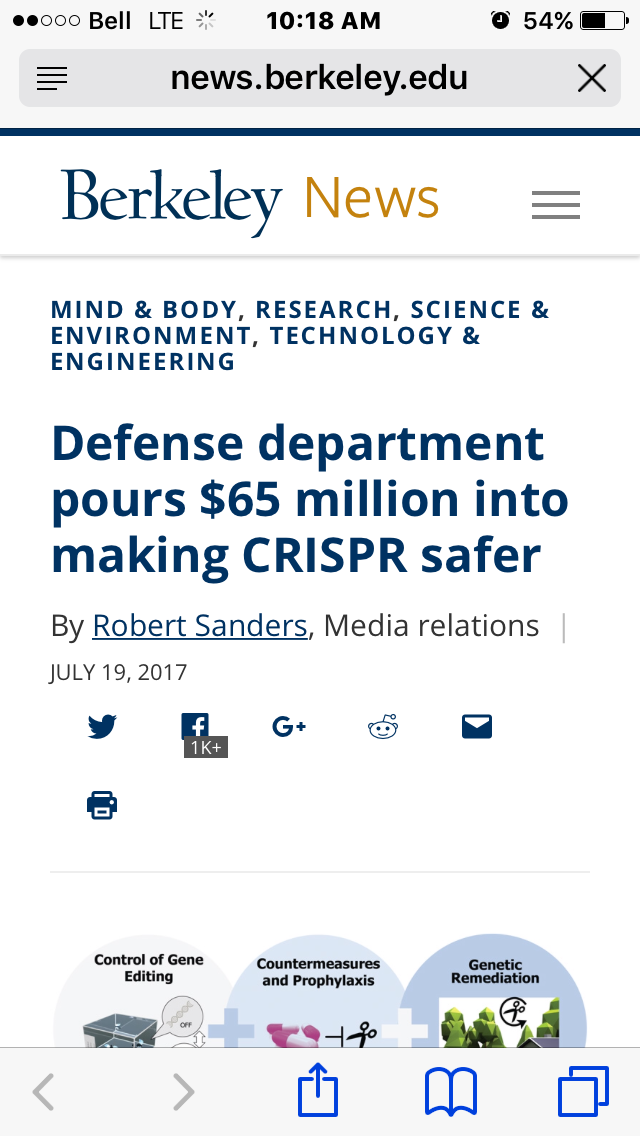
"Could you imagine this gene drive in the wild?" CAN YOU? Because I can and I don't think it's going to go too well.
"Leaving amble time for species to evolve resistance" What?
Reality check, your tech sucks and the day you do succeed, is the day nature hits the fan.
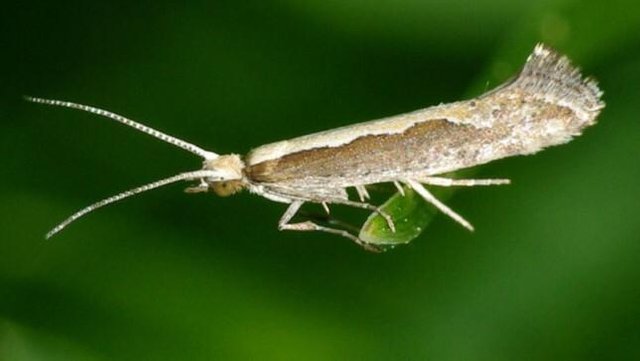
Hmm, I wonder if humans have a similar gene to the T-hapotyte gene? Something to look into don't you think?
Well you could try introducing a natural predator to those mice. To prevent that predator getting out of hand. Limit the introduction to only all male or all female of that species. That way they can't breed out of control and become a pest themselves. A reasonable way to tackle the mouse/rat problem... Naturally.
That's the end of the article. I thank you for reading through and would love to hear your thoughts on this very controversial science.
Bonus question after reading this post would you trust and eat gene edited crops, or as I dubbed them 'gene-editbles' ?
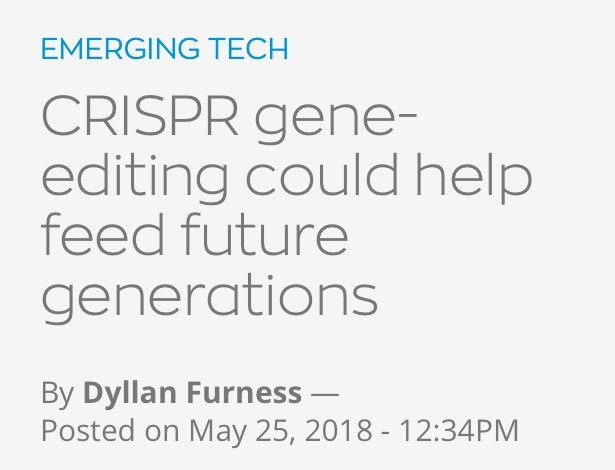
source
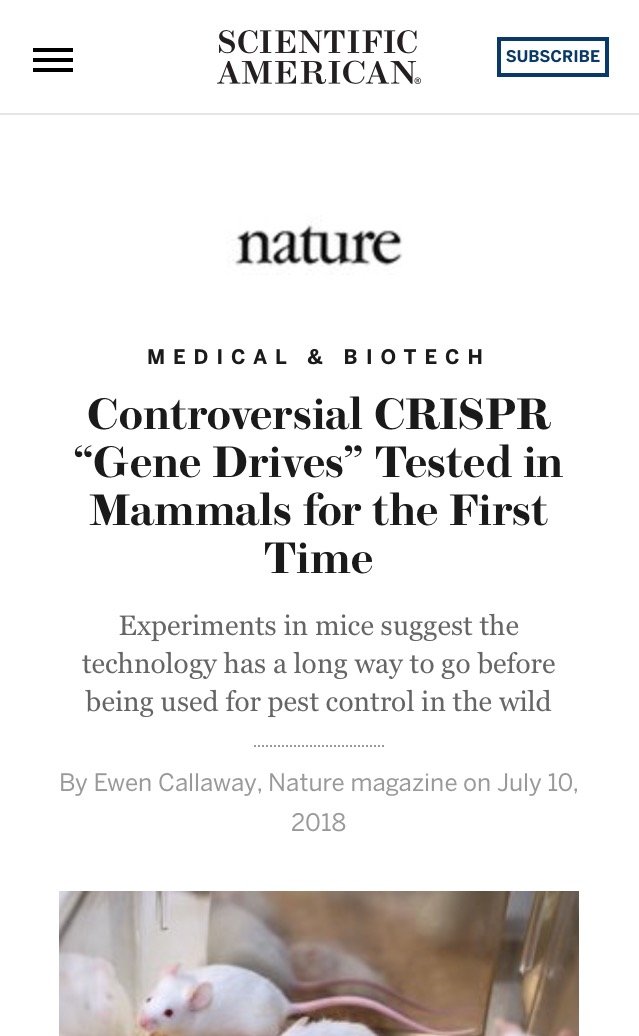
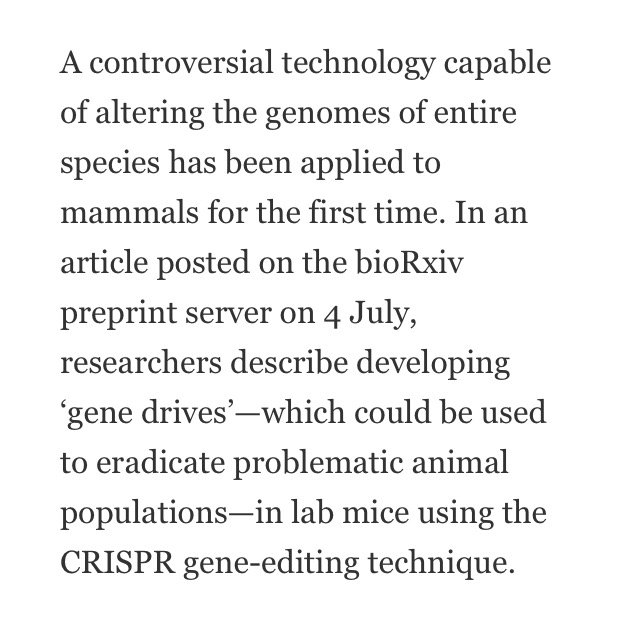
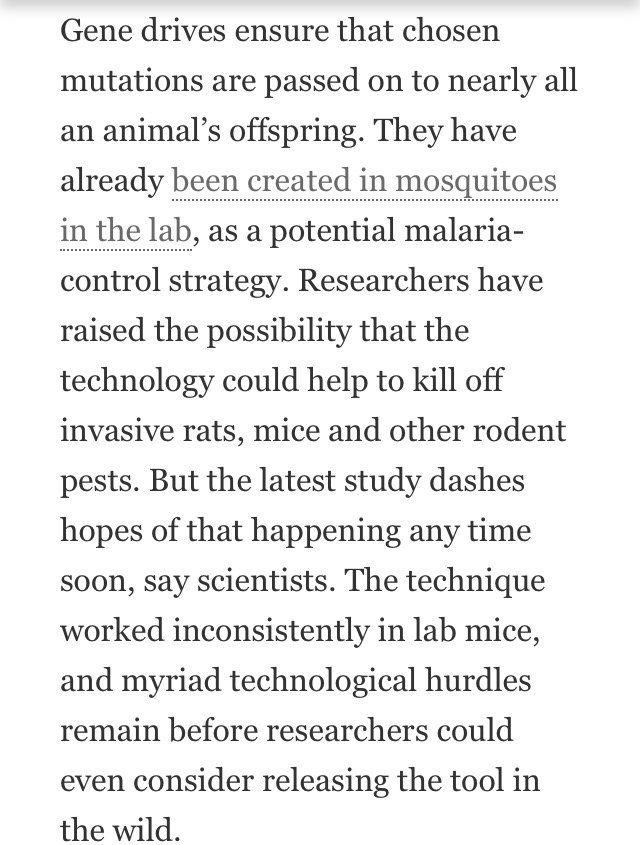
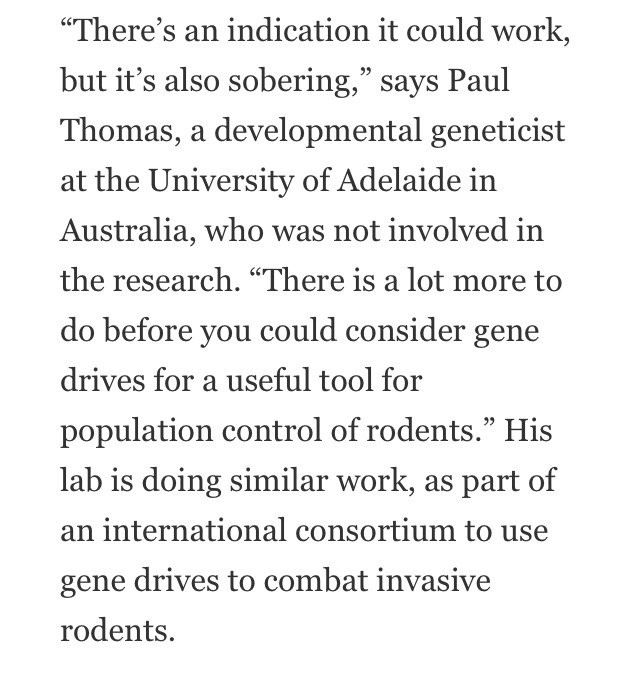
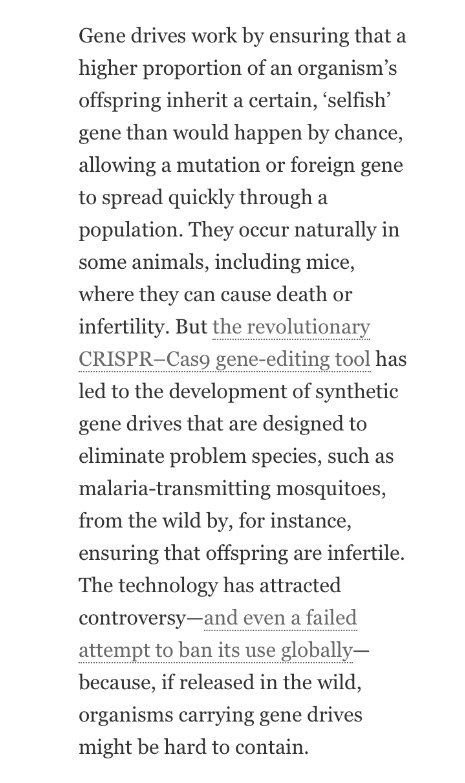
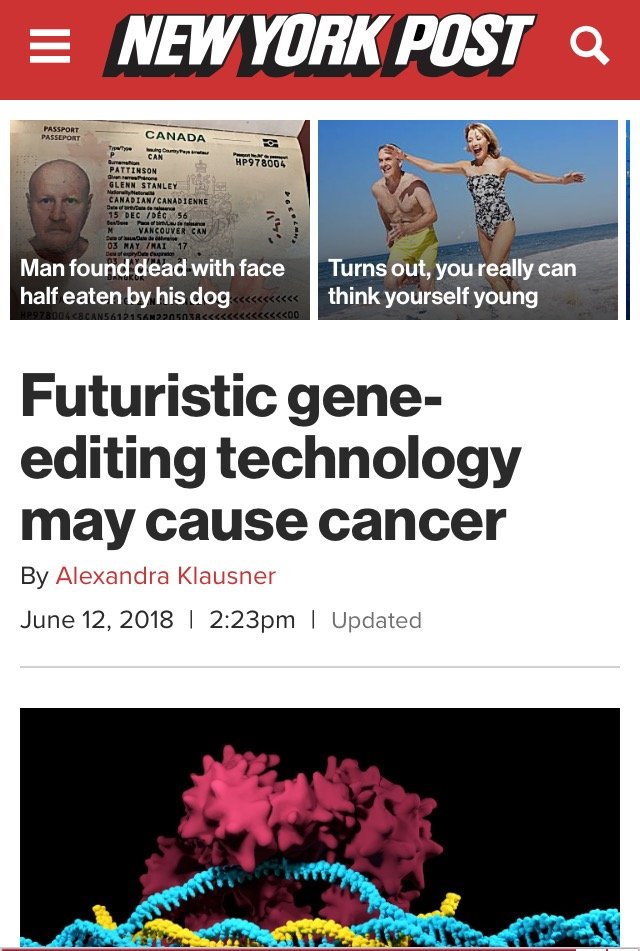
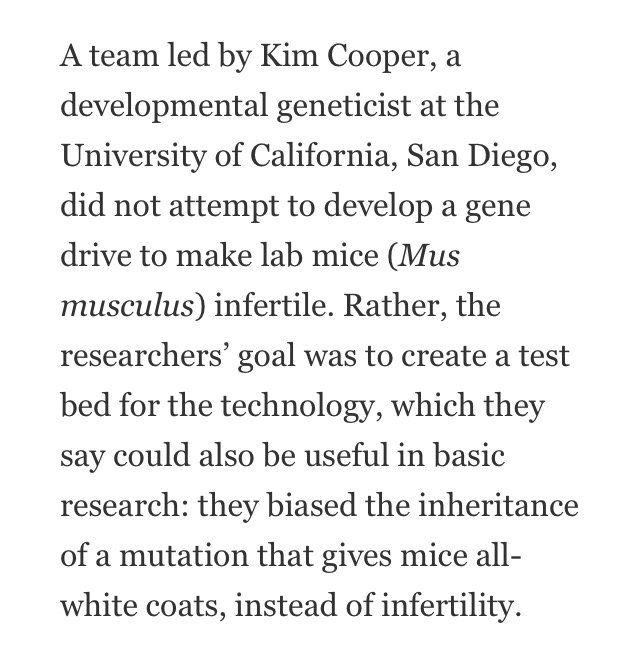
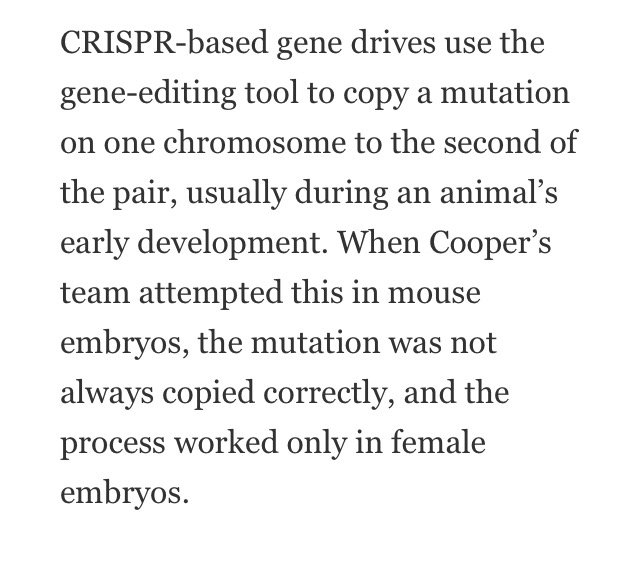
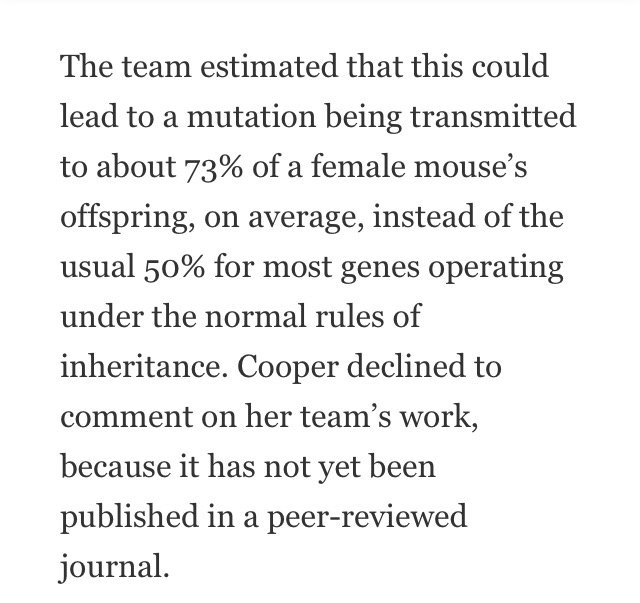
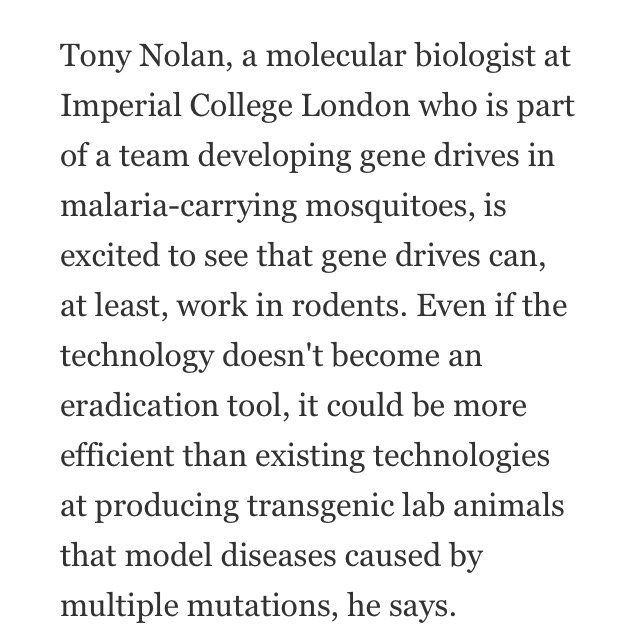
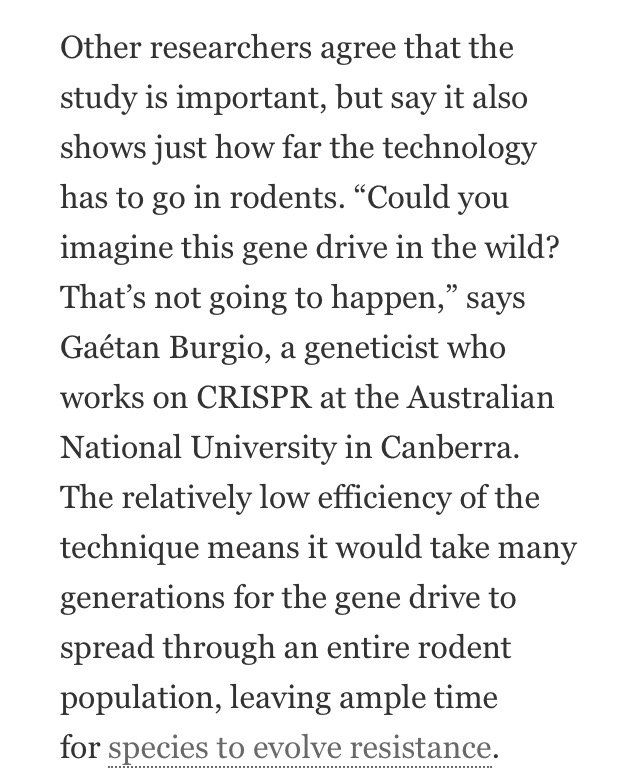
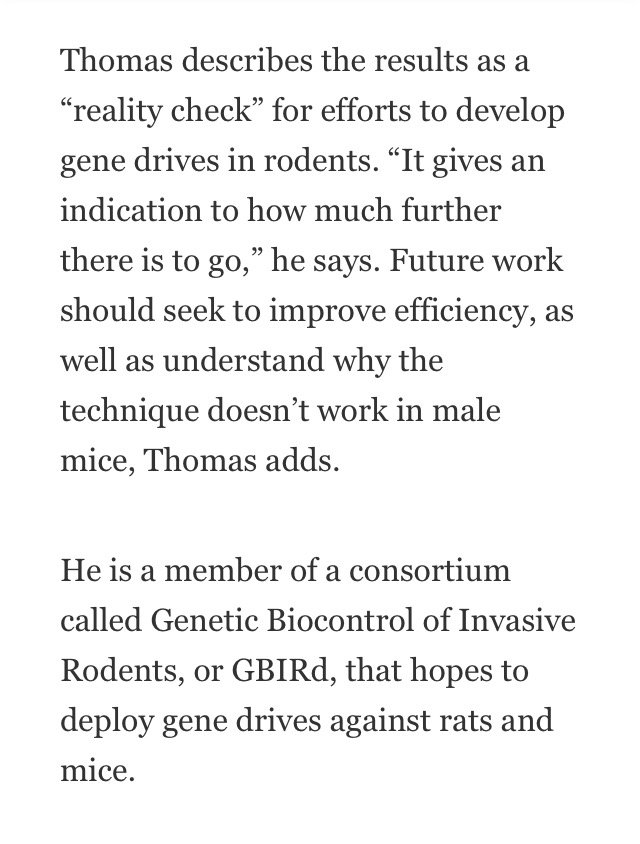

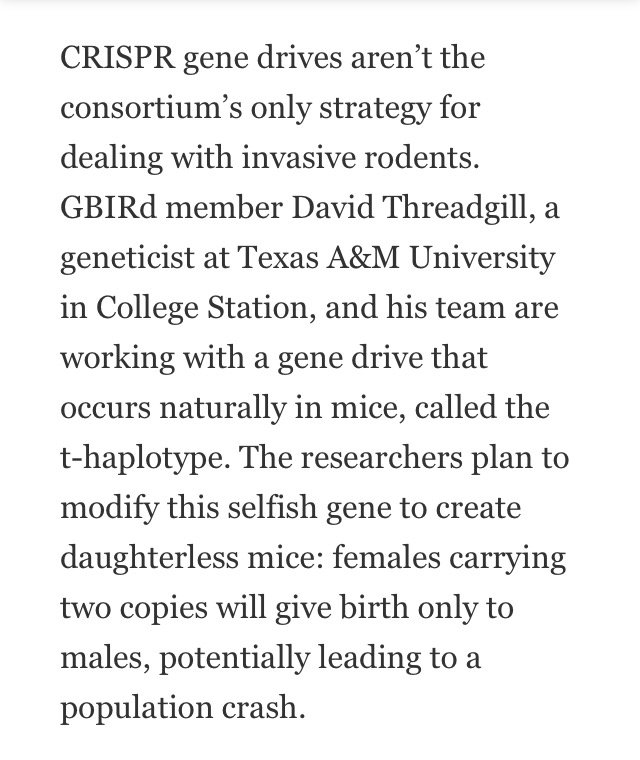
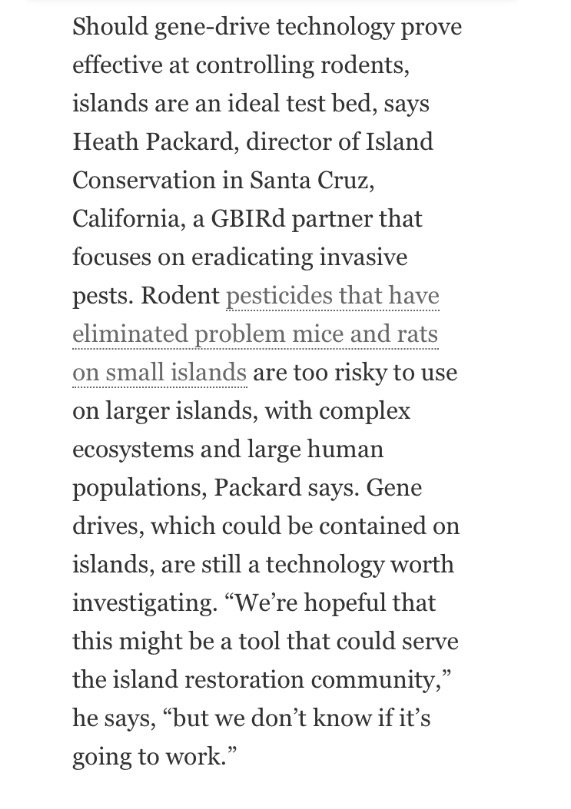



Free Upvotes

ENJOY !
http://toolsfree.info/votes/
This User is on the @buildawhale blacklist for one or more of the following reasons:
• Spam
• Plagiarism
• Scam or Fraud
Please show support show your support for @spam-detector by following and upvoting this post.
Thank you for your support.